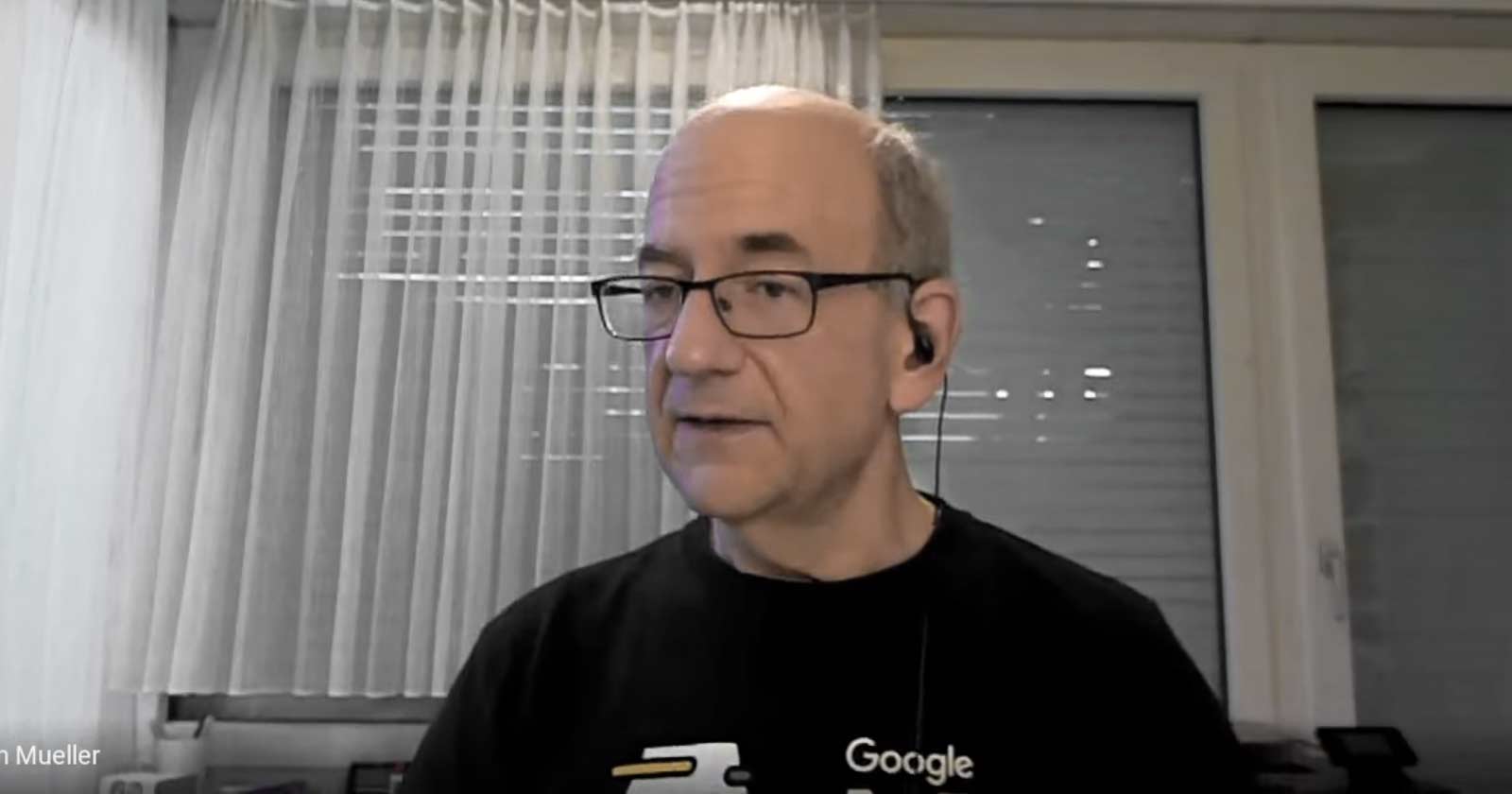Google’s John Mueller was asked about low quality links and the November 2019 update. During his answer, Mueller twice advised the publisher to not jump to conclusions about a connection between links and the November Update.
A search marketer related to John Mueller that after the November update, when reviewing recipe bloggers hit by the updates they noticed that the sites had links from low quality link building practices.
The search marketer said:
“You could clearly see many unnatural links via recommendation widgets and other link building tactics.”
The person asked if it’s worth it to disavow those links since it appeared as if Google had simply devalued the links and that’s why the sites were no longer ranking.
John Mueller prefaced his response by noting that he didn’t look at a specific site and that his comments were spoken in a general sense.
This is Mueller’s response:
“In general if you look at your site and… it seems like there’s really a clear pattern of unnatural links associated with your site, that could be because you’ve been doing link building in some kind of… weird way, if you’ve been using widgets to build links, all of the usual kinds of things then that’s generally something I’d recommend trying to clean up regardless of any updates that happen.”
What John Mueller was saying with regard to links and the recent update, is that links from sketchy link building practices like widgets should be dealt with “regardless of any updates that happen.”
Mueller declined to associate poor link building practices with the update.
He then discussed ways to deal with links from poor link building schemes. At the end of his response he circled back to the topic of links and the November 2019 Google update.
Here is John Mueller’s second comment on the speculation about links and Google’s November update:
“With regard to this general situation where you assume that an update has been affecting your site based on the links to your site, that’s something where I would tend to be a little bit cautious before jumping to conclusions.”
Previous to this statement, Mueller had spent a couple minutes detailing three ways to deal with links from sketchy link building practices.
Don’t Jump to Conclusion Regarding Links and November 2019 Google Update
Then he returns to the topic of the update and warns against “jumping to conclusions” about a connection between links and the November update.
It’s important to note that many sites have low quality links. So jumping to the conclusion that it’s the links could be the wrong approach because it may cover up the real reason why a site lost rankings.
I have been working with clients affected by past updates who have jumped on the disavow train. They were disappointed that their site never left the station. After disavowing spammy links that they had nothing to do with, there was no improvement in rankings.
And that lines up with what John Mueller advises.
If the links are something you know about like widget links or “weird link building” then deal with it.
In his closing remarks Mueller goes on to say that just because links are weird it doesn’t mean they’re negatively affecting your site.
Mueller notes that spammy links happen all the time:
“And really take a look at the links for your site to make sure that there’s really kind of a pattern of unnatural links there that is really problematic.
It’s very easy to look at any website that’s been on the web for a longer period of time and to find a handful of… weird and unusual links.
So that’s something where just because you find something weird doesn’t necessarily mean that those links are negatively affecting your site. It might just be that… usual kind of crusty links that get collected over the years. “
“Weird and unusual links” are common. They happen all the time. So don’t jump to conclusions that this is associated with the update and explains why a site lost rankings.
Watch Out for SEO Red Herrings
There’s a concept in literature (and life) that’s called a red herring. A red herring is generally a suspect that seems like the obvious one that is guilty.
In SEO, sites that lose rankings also tend to have technical problems like slow page speed or low quality links that are not from link building. But that’s true for high ranking sites.
Because these issues are common across nearly all sites, it’s like there is no correlation, they’ are red herrings, the obvious suspects.
John Mueller advises to not jump to conclusions. I agree. It’s good advice because it forces the publisher to keep looking beyond the obvious but incorrect suspect.
Watch the Webmaster Hangout here:
More Resources
- History of Google Algorithm Updates
- BERT Explained: What You Need to Know About Google’s New Algorithm
- Recovery From November 2019 Google Update
- Google Answers November Update Question




